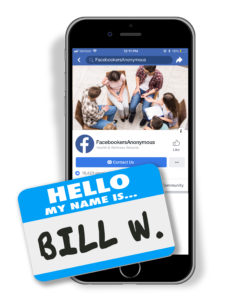Social Media is an Addiction. People are Kicking the Habit… Or Are They?
 During a recent dinner among fellow DTC marketers, I asked who believed it was critical for their brand to be on social media. All answered yes. Then I asked how many of the pharma brands they work on have made the leap. Only half answered yes. I turned my attention to the “no” group to dive into their reluctance to take their brands to social media, and their answers surprised me.
During a recent dinner among fellow DTC marketers, I asked who believed it was critical for their brand to be on social media. All answered yes. Then I asked how many of the pharma brands they work on have made the leap. Only half answered yes. I turned my attention to the “no” group to dive into their reluctance to take their brands to social media, and their answers surprised me.
I expected the standard excuses regarding MLR headaches, FDA risks, 24/7 Facebook monitoring, and the such. But what I heard was that most of these marketers had a new reason for resisting social media marketing: they simply don’t like social media.
Let’s face it. Trust in social media is declining among consumers and marketers alike. A quick scan of 2018 headlines will bring up allegations of privacy violation, miscalculating metrics, and mass distribution of fake news just to start. In addition, countless recent studies are revealing the perils of digital addiction to our brains, our emotions, and our entire social system. Yet, Facebook remains the backbone of social media and for many people worldwide, it is their entry point into the Internet.
Pharma DTC marketers ask me all the time, why do I need to be on social media? While I hear about people deleting Facebook from their phones, studies show that 68% of American adults, or roughly 171 million people, are still using the social media network. And the same people that claim to be shunning Facebook can’t get enough of Instagram and WhatsApp, social media platforms owned by Facebook. I see it among my peers, too; they say they dislike it, but they keep on scrolling.
It used to be that if you wanted to reach the greatest amount of people, you advertised during the Super Bowl to grab its roughly 111 million viewers. Facebook is like a Super Bowl ad. Every. Single. Day. And you don’t have to spend over $5 million for a 30-second spot. Can your brand afford to not advertise on Facebook?
 Accommodating pharma
Accommodating pharma
Maybe it will ease our social conscience to discuss what Facebook is doing right.
Just as Facebook rewards its advertisers for publishing engaging content, the company itself also works at being sensitive to the needs of their users. In response to the unique regulations surrounding drugs and devices, Facebook now allows pharmaceutical companies to turn off comments. While eliminating comments is not ideal due to the subsequent “de-prioritization” of content, this exception is not made for other companies and reflects their desire to make the platform acceptable to the healthcare industry.
In response to industry demands, Facebook has also enabled a scrolling ISI feature so that required safety information can be shared in Facebook ads while not exceeding the available space. As with the comment control, this solution is not ideal. However, it is incredibly encouraging that Facebook is responding to user demands. As more pharma companies create a presence on Facebook, I have no doubt that Facebook will respond to demand and rally their creative genius to find better solutions to ISI, and further adapt their suite of advertising products to better serve the pharma industry.
Metrics + algorithms
Facebook uses big data, deep learning, complex algorithms, and many more advanced technologies in its never-ending quest to balance the demands of its stakeholders. At the moment, Facebook is prioritizing authentic interactions – they want to engage users, and they are using complex algorithms to determine if responses to a post are authentic and credible. While they have offered companies the ability to turn off comments – an idea that frequently appeals to a regulated industry like pharma – they punish you for using this option with lower rankings and less visibility. I recommend to my clients that they encourage and manage comments, but if you’re not ready to do that, the option is there for brands to turn them off.
Just the pictures please
Instagram, the photo and video-sharing social networking service owned by Facebook, is currently the fastest growing social media network. While Instagram can frustrate pharma marketers with its limited space for legal disclaimers and hyperlinks only available in the user bio, its 1 billion monthly users motivate marketers to overcome the learning curve. In addition, some innovative methods for including ISI information in Instagram Stories or on entirely separate accounts has eased some of the pain of posting necessary legal information.
Who’s doing it right
There are a number of pharmaceutical companies that are doing a good job of managing a social media presence and reaping the benefits of increased consumer awareness. One is Alimera Sciences, a pharma company that makes ILUVIEN – a small drug depot that is inserted into the eye for long-term treatment of diabetic macular edema. Alimera Sciences created a comprehensive program to use Facebook, YouTube, and Twitter to raise awareness not only of the drug, but also of the condition itself. They created targeted ads that addressed the concerns of those who might be looking for a solution to potential loss of vision. With a minimal investment in paid outreach on those channels, the campaign achieved nearly 200,000 impressions or engagements with its posts. Facebook provided a space where ads and information about ILUVIEN would be readily received by its audience.
EVZIO is another example of a company, in this case kaléo, Inc., that is successfully taking their consumer marketing to social media channels. A prescription medication used in cases of opioid emergencies, EVZIO chose to disable comments due to addiction being such a hot button issue. Their posts and paid outreach target addicts and individuals who care for a senior citizen who might accidentally overdose on opioids for pain management, and everything links back to their website with its well-developed messaging and product information.
In short, while we love to hate on social media, we’re all still addicted to scrolling. Facebook remains one of the best ways to reach the largest audience.

